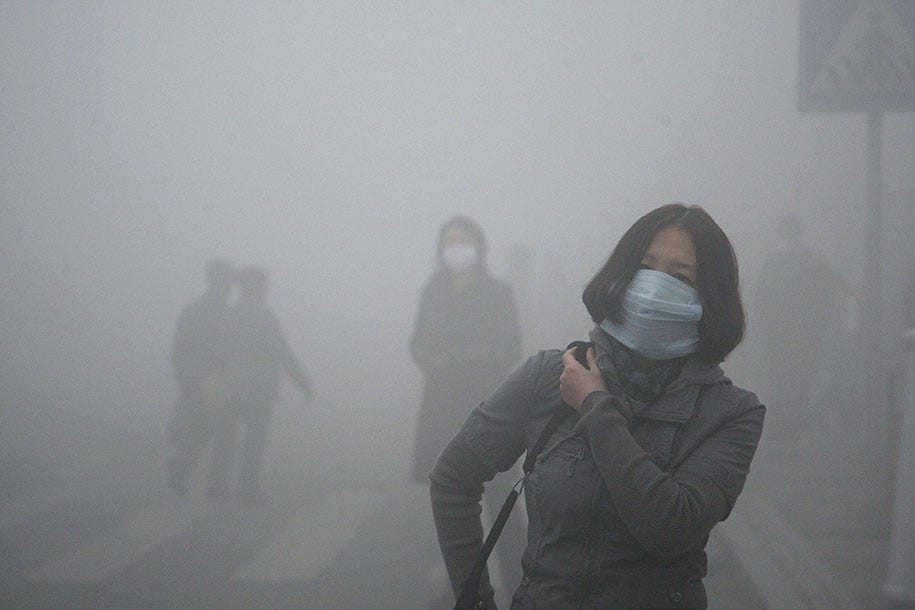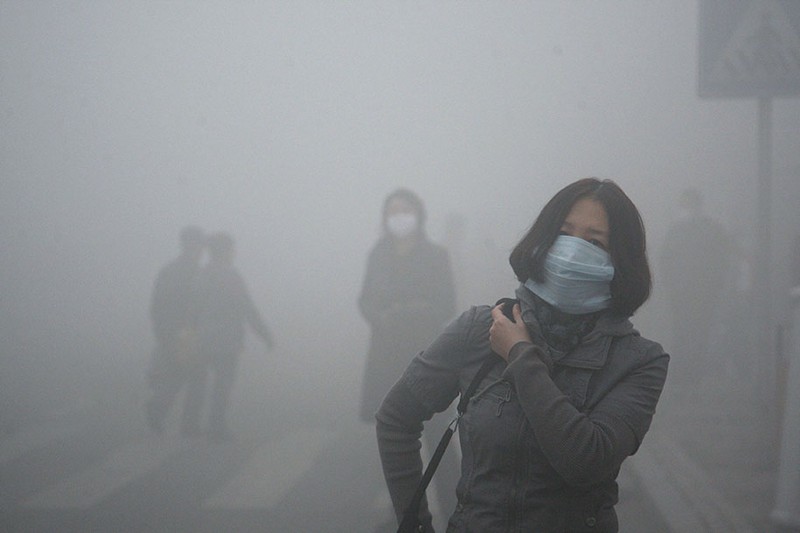The Importance of Civic Participation in Moments of Perceived Institutional Failure: Lessons from China
By Eli Emigh, New York City Program Associate

I found the importance of civic participation at a time in my life when my own views on civic engagement were nihilistic at best. I was a college student studying abroad in Beijing, the last place I expected to challenge my nihilism.
Part of my semester abroad was an extensive cultural field research project during which I became fascinated with this buzzword — “PM2.5.” PM2.5 is a single phrase that boils down a complex policy. In practice, it illustrated a political moment of popular outrage around air quality and pollution in China. For years, the government in Beijing had measured air quality with a standard of “PM10,” which measured an industrial level of air pollution and rarely reflected lived experience. PM2.5, which is an international standard, measures a more minute level of pollutants in the air, more relevant to people’s health.
In 2011 the U.S. Embassy began taking their own measures of air quality in Beijing using PM2.5 and reporting drastically worse air quality measures than those reported by the Chinese government. The Embassy shared its measurements on Twitter. For those unfamiliar, the “Great Firewall of China” blocks access to sites such as Twitter, Facebook, and Google; but this can be circumvented with relative ease. The reporting from the U.S. Embassy spread like wildfire across Beijing. Chinese celebrities began posting these reports to Weibo, the Chinese version of Twitter. Middle-class and upper middle-class residents in the city began buying technology to take their own local air quality readings and reporting them as well. It’s worth noting that lower-income and more rural residents followed the news and dialogue around PM2.5 as well. However, they were generally less able to participate without the access to technology and as occupants of a more politically sensitive and vulnerable demographic.
As discussion and discourse grew around the discrepancy in air-quality reporting, a clear institutional failure became increasingly apparent. Discontent and frustration among citizens continued to grow. Non-government organizations took action, media coverage amplified the issue, and a relentless storm of public opinion brewed on social media. Multiple attempts by the government to implement 24 hour bans on certain phrases on social media and other efforts to reduce discussion around air quality failed to impact public discourse, and pressure continued to grow for a change in policy and accurate reporting of air quality. By spring of 2012, the Ministry of Environmental Protection (MEP) announced that it was changing its national standard for measuring air quality to PM2.5. This was a minor change, but a big victory. The policy change will continue to impact politics and policy around air pollution for decades to come.
When we discuss strengthening our democracy through educating for civic participation, it can be easy to look to our local contexts, or at least those we see as relatable. But this story shows that lessons can come from anywhere. Here’s what I took away:
- Moments of public outrage that result from the perceived failure of the institutions that serve us can be very disheartening. A lack of responsiveness to these concerns can make the situation feel more disheartening. But that doesn’t mean participation and constant engagement can’t bring change.
- Civic participation as a result of institutional criticism and public outrage can lead to real policy change and strengthening of our institutions.
- Often the most impacted populations are also the most voiceless. Political, socioeconomic, and cultural factors play a big role in framing and creating opportunities for political participation. Opportunity in this space is not inherently equitable or even.
As long as there is space for political participation, an engaged citizenry can breed responsiveness from decision makers, regardless of the strength of a country’s democracy. Arguably, it makes responsiveness a necessity. However, how and who can engage is critical.
At present, there is increasing political discourse and discussion about politics by young people in the United States. However, discourse among these young people often continues to be defined by an underlying nihilism that their vote, or their participation, cannot shape our institutions to be responsive to their voices. In my youth and early in college, my own views exemplified this very belief. In China this view changed.
Even in a non-democratic country, civic participation shaped policy outcomes. Yet one shouldn’t have to accidentally discover the value of civic participation while doing research in a foreign country. This is something that can start with proper education. Prioritizing giving the tools, knowledge, and skills needed to engage politically in the 21st century can broaden the definition of who can participate and allow everyone to better understand how they can engage. This can start in the classroom. This can start with Action Civics.
